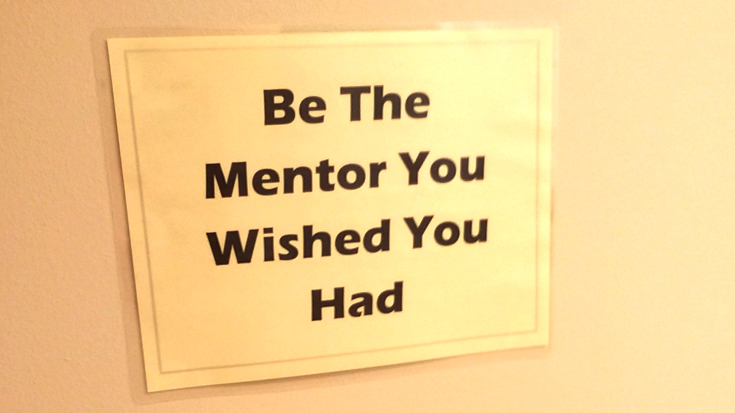
Mentors play a vital role in any profession, and respiratory care is no exception. Newly minted RTs and even seasoned veterans in the field thrive best when they have someone in their professional lives who has their back.
What does it take to be a good mentor? An RT manager and RT educator weigh in.
The sign says . . .
There’s a sign that hangs in the respiratory care department at the University of Alabama at Birmingham Medical Center that reads, “Be the Mentor You Wished You Had.”
That pretty much sums up the commitment this department has made to mentoring.
“We are a university hospital, so we see teaching and mentoring as a normal part of our work,” said department manager Robert B. Johnson, MS, RRT. ”All RTs on days and nights are considered a preceptor/mentor for new employees and students.”
Johnson says that means him too, and he loves talking to people and showing them the ropes. “New employees and students are normally very excited and eager to see and learn about respiratory and what or how we do therapies at our hospital,” he said. “It’s our job, it’s our duty to the patients and profession to pass on our passion for the love of respiratory.”
Johnson’s advice for new mentors —
Learn about and assess the other person to determine what you need to show them and how you need to get the information across to them. Some new RTs have the knowledge and skills; they just need a boost in their confidence. What concepts can you talk about and then demonstrate? Don’t assume anything — ask, look, and learn about them as a person and as an RT.
400 and counting
Deborah Patten, MA, RRT, CHSE, estimates she’s mentored 400 RTs over her 40-year career in respiratory care.
“I offered to be a mentor because, early on, I realized that I thoroughly enjoyed teaching students at the bedside,” she said. “It was incredibly rewarding to see them learn and notice the ‘light go on’ as they put the classroom knowledge into practice in the clinical experience.”
As an assistant professor and clinical coordinator for the bachelor of science in respiratory care program at Northern Kentucky University, she believes it’s a big part of her job as well — and it’s one of her favorite parts of her job too.
“Being a developer of persons — helping them discover and use their strengths and skills — is one of my personal strengths,” Patten said. ”In other words, when I do this, I am the most fulfilled and happy at my job!”
Patten believes any RT with a good knowledge of RT concepts, equipment, and patient assessment who is patient and caring and enjoys helping others learn new things would qualify for the mentor role in respiratory care.
She has this list of do’s and don’ts for mentors embarking on a new mentor/mentee relationship —
- Do be welcoming and respectful to the mentee; this sets the tone for the entire day!
- Do have a plan for the day using the mentee’s objectives as a guide. This gives direction for the day.
- Do be willing to slow down and allow the mentee to do procedures according to their skill level. This helps the mentee feel valued.
- Don’t communicate in any way — verbally or nonverbally — that, “I don’t like having students/new orientees.” This kills the learning and trust in the relationship at the start.
- Don’t avoid talking to your mentee throughout the day. When mentors speak only minimally or as needed, the mentee feels invisible and not important.
- Don’t demean or criticize your mentee in front of patients or health care professionals; the embarrassment that comes from being reprimanded in front of others is extremely hard to overcome when trying to regain confidence.
Are you up to the challenge?
Building a competent workforce in respiratory care requires more than just an excellent educational system. It requires therapists who are willing to step up and support their colleagues as they navigate their careers. Consider how you can share your knowledge and expertise by serving as a mentor.





